OneToMany + MapKeyJoinColumn doesn't work for me, please suggest what I'm doing wrong.
I'm using JPA 2.0 + Hibernate 3.6.1 And want to map following tables:

To Classes:
@Entity
public class Question {
// id and other fields
@OneToMany(mappedBy="question", cascade = CascadeType.ALL)
@MapKeyJoinColumn(name="language_id")
private Map<Language, Statement> statements =
new HashMap<Language, Statement>();
}
@Entity
public class Statement {
@Id
private Long id;
@ManyToOne
@JoinColumn(name = "language_id", nullable = true)
private Language language;
@ManyToOne
@JoinColumn(name = "question_id", nullable = false)
private Question question;
@Column(name = "message")
private String message;
}
@Entity
public class Language {
@Id
private Long id;
@Column(name = "name")
private String name;
}
But it doesn't work. EntityManager persists it correctly, but when I retrieve Question, in it's statements map there is only one language-to-null entry. Please, help
Edit1: Strange, but when I preload all Languages, like this:
String sql = "select l from Language l";
List languages = entityManager.createQuery(sql, Language.class).getResultList();
then it works!
Does anybody know how to make hibernate automatically load all objects of certain class?
entityManager.find(Question.class, 463L);– jnr Feb 22 '11 at 11:56